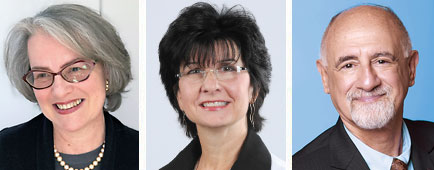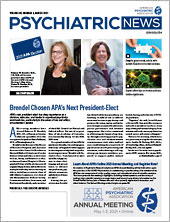In this Annual Meeting session, you’ll learn that the bumps and scrapes in our careers may just be an exciting opportunity in disguise. Three senior psychiatrists—the authors of this article—will share lessons from their lives and careers both exquisite and excruciating.
Career transitions come in three forms: Those we strive for, those we do not expect but positively open new paths, and those we do not expect and negatively alter our path. When we are facing an unexpected transition, the all-too-common reaction is to isolate and withdraw from colleagues. How do we relinquish the idea of control/prediction in our career path, and substitute a sense of direction and self-desire? Constructing meaning from change, no matter whether it is self- or other-initiated is crucial. Such events can be a wakeup call reminding us to reach out to friends and colleagues—they are our sustaining force. These disruptions represent opportunities for reassessment, reappraisal, taking stock, and creating meaning.
This session is intended to provide a positive approach such that if you ever find yourself at a painful juncture in your career, don’t despair; there may be a master plan waiting for you that you can’t yet appreciate. How we decide what to strive for and how we cope with unexpected career transitions will be the focus of this session, because until you are dead, no decisions are irrevocable. Decisions about what things are important and desirable versus what things have been done out of a sense of loyalty to others, desire to protect others, and assumptions of what is “expected” of us control our response to the transition. Sometimes unexpected and unwanted career transitions are truly a blessing in disguise!
The session will also explore retirement, which is not a dirty word. Retirement is sometimes planned (more often not) and frequently brought about by illness or dissatisfaction with an unwanted late-career disruption. When you love what you do, when your identity is what you do, retirement seems like a second- or third-class option. Who would want to do that?
At the conclusion of our session, we hope participants will have the following take-home pearls:
•
Work with those by whom we are inspired and by whom we are valued.
•
The universe may have a plan for you that you can’t see in the midst of a painful transition.
•
People change for two reasons: (1) pain and (2) more pain. Sometimes it takes a painful nudge or in some cases a shove to have the courage to make a change.
•
Being happy and fulfilled is the best revenge if you are ever wronged.
•
You can love an institution, but it won’t love you back. An institution is a big business.
•
Each position you are in is preparation for the next one. Be open to new adventures and new opportunities. ■
“Here’s Your Hat, What’s Your Hurry: Career Transitions in Academic Psychiatry” will be held Sunday, May 2, from 11:30 a.m. to 1 p.m.

